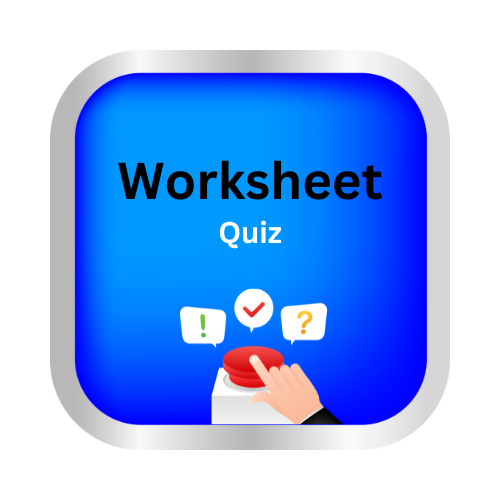Correct errors with indefinite pronoun-verb agreement
Key Notes:
| What are Indefinite Pronouns? |
Indefinite pronouns refer to people, places, or things in a general way — not specifically named.
👉 Examples: everyone, somebody, anything, few, many, none, all
| Singular Indefinite Pronouns |
These pronouns take a singular verb because they refer to one person or thing.
✅ Examples:
- Everyone likes pizza. 🍕
- Somebody is knocking at the door. 🚪
- Each has a homework to do. 📚
📘 Singular Indefinite Pronouns List:
anyone, everyone, someone, no one, anybody, everybody, somebody, nobody, each, either, neither, one, another
| Plural Indefinite Pronouns |
These pronouns refer to more than one, so they take plural verbs.
✅ Examples:
- Many are waiting for the bus. 🚌
- Few have completed the project. 🧩
- Several were missing from class. 🏫
📗 Plural Indefinite Pronouns List:
both, few, many, several
| Indefinite Pronouns That Can Be Singular or Plural (Depending on Meaning) |
These pronouns can take singular or plural verbs depending on what they refer to.
✅ Examples:
- All is lost. 😢 (referring to a singular idea)
- All are happy. 😀 (referring to people)
- Some is missing. 🍞
- Some are absent. 👩🏫
📙 List:
all, any, most, none, some
| Common Mistakes to Avoid |
🚫 Everyone have done their work.
✅ Everyone has done their work.
🚫 Few has gone home.
✅ Few have gone home.
🚫 Each of the boys are ready.
✅ Each of the boys is ready.
| Quick Trick to Remember! |
✨ Singular Pronoun = Verb ends in “s”
✨ Plural Pronoun = Verb has no “s”
✅ Everyone loves music. 🎵
✅ Many love music. 🎶
| Practice Sentences |
📝 Try to spot the correct verb form:
- Everybody (is/are) ready for the trip. 🎒
- Few (has/have) arrived early. ⏰
- Some of the cake (is/are) gone. 🍰
- None of the students (was/were) late. 🏫
| Summary Chart |
| Type | Indefinite Pronouns | Verb Type | Example |
|---|---|---|---|
| Singular | anyone, each, everyone, nobody | Singular Verb | Everyone is present. |
| Plural | few, many, several | Plural Verb | Several are missing. |
| Depends on context | all, some, none, any, most | Singular or Plural | Some is/are left. |
| Remember: |
Indefinite pronouns can be tricky — always check if they refer to one or many! 🌟
Let’s practice!🖊️

